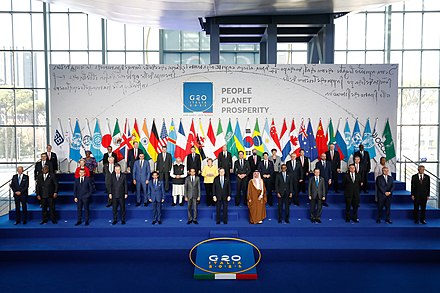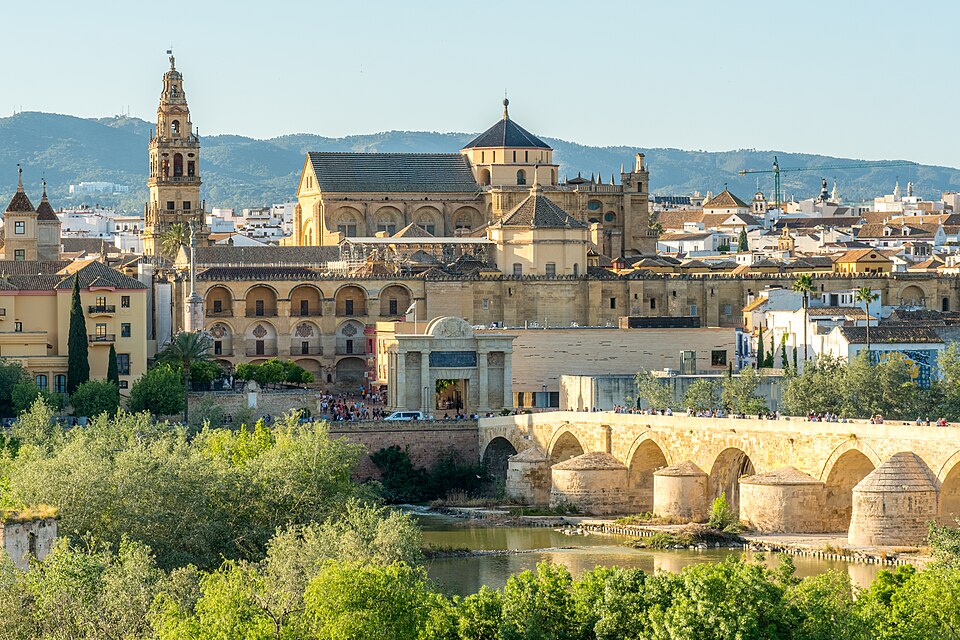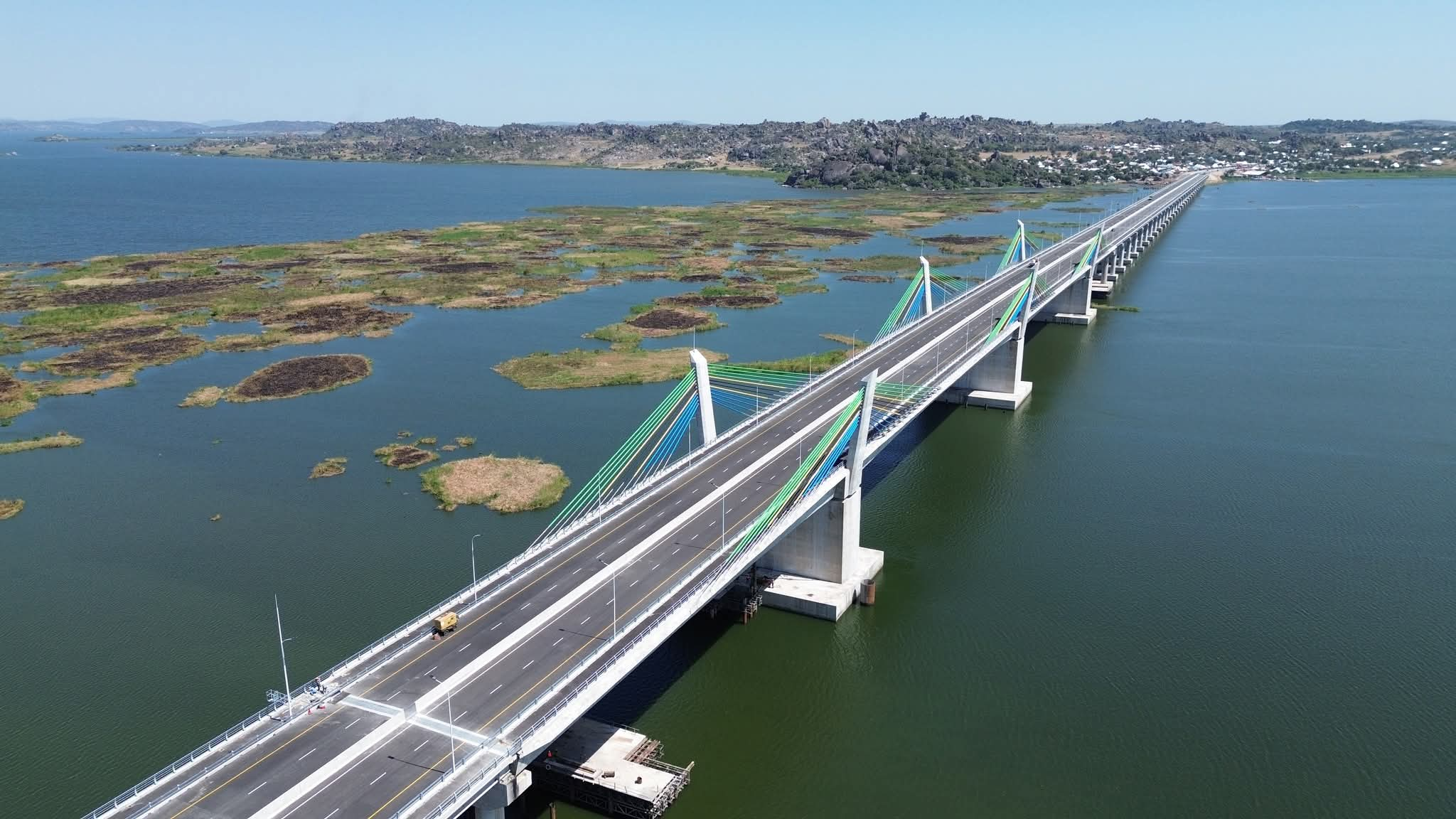FROM G7, G20 TO G21: A Brief History of the Intergovernmental Forum

Did you know that G20 (now G21) is an intergovernmental forum that comprises 19 sovereign countries, the European Union (EU), and of recent, the African Union (AU), all working together to address major issues related to the global economy?
The G20 is the latest in a series of post–World War II initiatives aimed at international coordination of economic policy, which include institutions such as the "Bretton Woods twins"—the International Monetary Fund, IMF, and the World Bank (now the World Trade Organization). As an intergovernmental forum it addresses global issues such as international financial stability, climate change mitigation, and sustainable development.
As of 2023, there are 21 members in the group: Argentina, Australia, Brazil, Canada, China, France, Germany, India, Indonesia, Italy, Japan, Mexico, Russia, Saudi Arabia, South Africa, South Korea, Turkey, the United Kingdom, the United States, the European Union and the African Union. Guest invitees include, amongst others, Spain, the United Nations, the World Bank and ASEAN. The African Union was included as a member of the G20 at the 18th G20 meeting 2023 in India, announced by Indian PM Narendra Modi who is the current chairperson of the G20 Summit 2023.
Representatives include, at the leaders' summits, the leaders of 19 countries, the African Union and of the European Union, and, at the ministerial-level meetings, the finance ministers and central bank governors of nineteen countries, the African Union and of the European Union. In addition, each year, the G20's guests include Spain; the Chair of ASEAN; a representative of the New Partnership for Africa's Development (NEPAD) and a country (sometimes more than one) invited by the presidency, usually from its own region.
The G20 was foreshadowed at the Cologne summit of the G7 in June 1999, and formally established at the G7 Finance Ministers' meeting on 26 September 1999 with an inaugural meeting on 15–16 December 1999 in Berlin. Canadian finance minister Paul Martin was chosen as the first chairman and German finance minister Hans Eichel hosted the meeting.
A 2004 report by Colin I. Bradford and Johannes F. Linn of the Brookings Institution asserted that the group was founded primarily at the initiative of Eichel, the concurrent chair of the G7. However, Bradford later described then-Finance Minister of Canada (and future Prime Minister of Canada) Paul Martin as "the crucial architect of the formation of the G20 at finance minister level", and as the one who later "proposed that the G20 countries move to leaders level summits". Meanwhile, Canadian academic and journalistic sources have also identified the G20 as a project initiated by Martin and his American counterpart then-Treasury Secretary Larry Summers. All acknowledge, however, that Germany and the United States played a key role in bringing their vision into reality.
Martin and Summers conceived of the G20 in response to the series of massive debt crises that had spread across emerging markets in the late 1990s, beginning with the Mexican peso crisis and followed by the 1997 Asian financial crisis, the 1998 Russian financial crisis, and eventually impacting the United States, most prominently in the form of the collapse of the prominent hedge fund Long-Term Capital Management in the autumn of 1998. It illustrated to them that in a rapidly globalizing world, the G7, G8, and the Bretton Woods system would be unable to provide financial stability, and they conceived of a new, broader permanent group of major world economies that would give a voice and new responsibilities in providing it.
The then G20 membership was decided by Eichel's deputy Caio Koch-Weser and Summers's deputy Timothy Geithner. According to the political economist Robert Wade: “Geithner and Koch-Weser went down the list of countries saying, Canada in, Portugal out, South Africa in, Nigeria and Egypt out, and so on; they sent their list to the other G7 finance ministries; and the invitations to the first meeting went out.”
The G20's primary focus has been governance of the global economy. Summit themes have varied from year to year. The theme of the 2006 G20 ministerial meeting was "Building and Sustaining Prosperity". The issues discussed included domestic reforms to achieve "sustained growth", global energy and resource commodity markets, reform of the World Bank and IMF, and the impact of demographic changes. In 2007, South Africa hosted the secretariat with Trevor A. Manuel, South African Minister of Finance as chairperson of the G20. In 2008, Guido Mantega, Brazil's Minister of Finance, was the G20 chairperson and proposed dialogue on competition in financial markets, clean energy, economic development and fiscal elements of growth and development.
The G20 operates without a permanent secretariat or staff. The group's chair rotates annually among the members and is selected from a different regional grouping of countries. The incumbent chair establishes a temporary secretariat for the duration of its term, which coordinates the group's work and organizes its meetings. For instance, the 2022 summit was held in Bali, Indonesia; while India, the current chair, hosted the 2023 summit. Brazil will host the 2024 summit.
In 2010, President of France Nicolas Sarkozy proposed the establishment of a permanent G20 secretariat, similar to the United Nations. Seoul and Paris were suggested as possible locations for its headquarters. Brazil and China supported the establishment of a secretariat, while Italy and Japan expressed opposition to the proposal. South Korea proposed a "cyber secretariat" as an alternative. It has been argued that the G20 has been using the Organisation for Economic Co-operation and Development (OECD) as a secretariat.
Source: Wikipedia
#penglobalfactfile


_1755775186.jpg)
